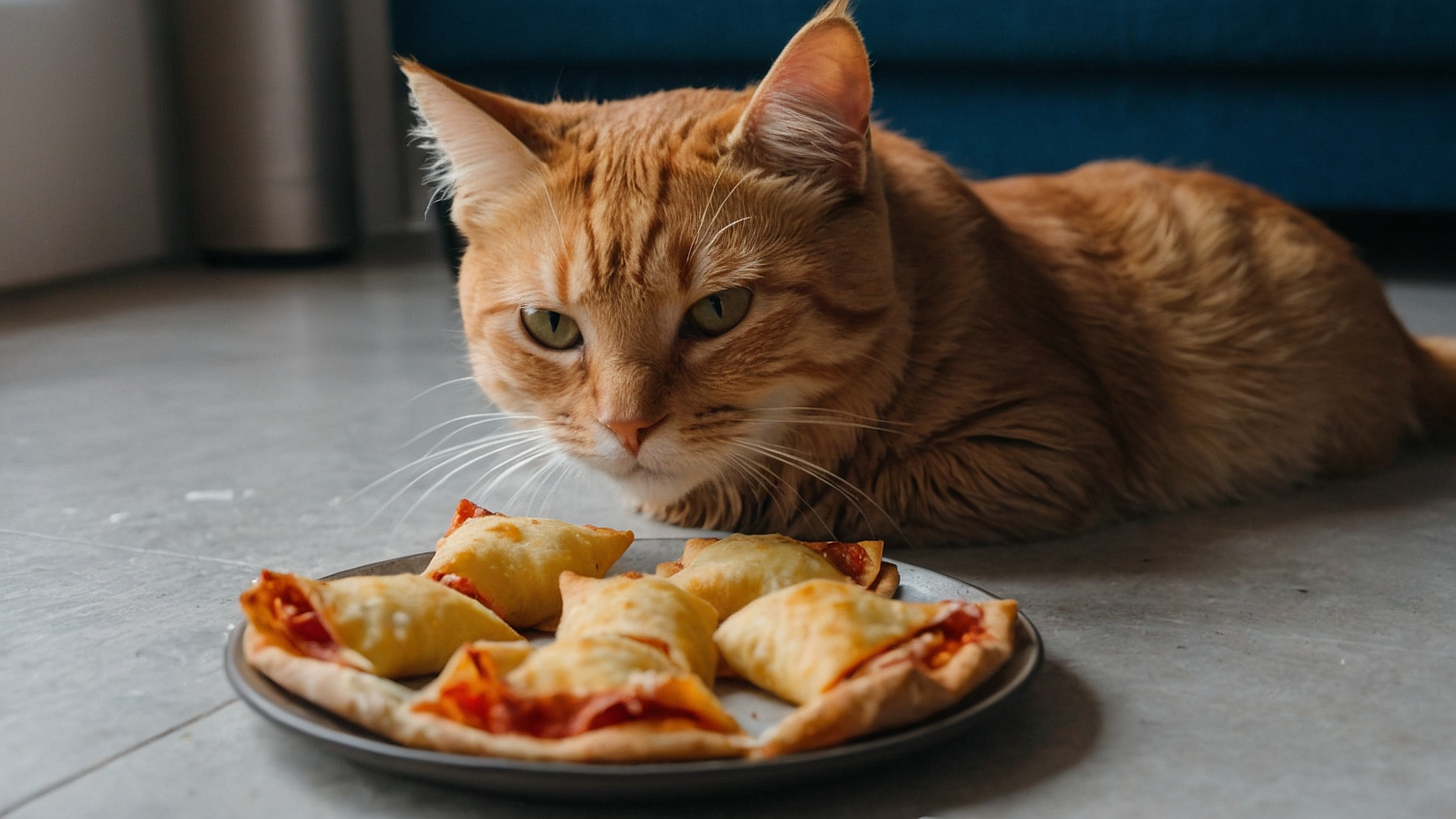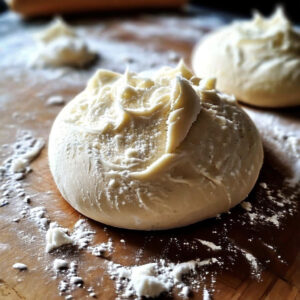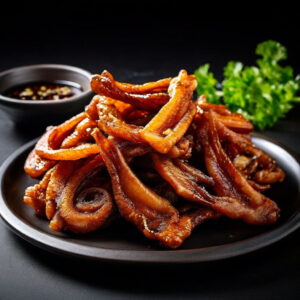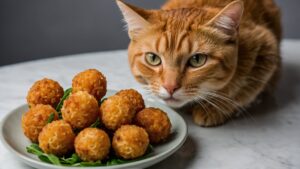Pizza rolls are a popular frozen snack many of us loved growing up. These bite-sized pillows of dough stuffed with cheese, meat, and tomato sauce make a tasty and convenient treat.
As a cat owner, you may have wondered: can cats eat pizza rolls too? Your kitty sees you enjoying this snack and wants to partake.
While pizza rolls may look harmless, they actually contain several ingredients that can be toxic and dangerous to cats, especially onions, garlic, and dairy.
Before sharing your pizza rolls, it is important to understand the health risks these ingredients pose. This article provides an in-depth look at whether or not cats can safely eat pizza rolls. We’ll cover:
- Potentially harmful ingredients in pizza rolls
- Health risks of feeding pizza rolls to cats
- Safer human snack alternatives for cats
- Frequently asked questions
After reading, you’ll understand why pizza rolls and cats don’t mix well, and how to choose more cat-friendly snack options.
Table of Contents
Can Cats Eat Pizza Rolls?
Pizza rolls may seem like an innocent way to share a tasty snack with your cat. However, cats should not eat pizza rolls as they contain several problematic ingredients that can cause illness:
Onions and Garlic
Onions, garlic, and related root vegetables are toxic for cats. They contain compounds called thiosulfates that can damage red blood cells and cause anemia:
- Anemia prevents red blood cells from carrying oxygen efficiently.
- In severe cases, it can lead to lethargy, faster breathing, and collapse.
- Onion and garlic toxicity can worsen if a cat eats them regularly.
Even small amounts found in pizza roll fillings and sauce can be dangerous, especially with repeated ingestion.
Dairy Products Like Cheese
Cheese and other dairy products commonly cause gastrointestinal upset in cats. Most felines are lactose intolerant:
- Lactose in dairy is hard for cats to digest properly.
- Consuming dairy leads to nausea, vomiting, diarrhea, gas, and abdominal pain.
- Some cats may experience an inflammatory bowel disease flare up.
- Cheese is a primary ingredient in most pizza roll recipes.
Too much dairy at once increases the risk of painful digestive issues.
Greasy, Fatty Dough and Filling
The oily, fatty dough and processed meat fillings increase the risk of pancreatitis in cats:
- Pancreatitis is a serious inflammation of the pancreas that requires vet care.
- It causes nausea, painful abdominal tenderness, vomiting, diarrhea, and more.
- High fat foods like pizza rolls commonly trigger flare ups.
Cats’ pancreases cannot handle rich, greasy foods well. The high fat content is hard to digest.
Potentially Toxic Seasonings
Pizza roll fillings and sauce may contain additional seasonings toxic to cats, such as:
- Onion powder
- Garlic powder
- Parsley
- Chives
- Pepper
- Unsafe herb blends
Always check the ingredients list on packaging.
High Sodium Content
Pizza rolls and most processed frozen snacks have very high sodium levels. Too much sodium is unsafe for cats:
- It puts strain on the kidneys and can cause kidney disease.
- Sodium promotes hypertension which can damage organs.
- Cats’ kidneys cannot handle salt like humans. They easily become overloaded.
The American Association of Feline Practitioners recommends cats eat diets under 100 mg of sodium per 100 calories. Most frozen pizza rolls far exceed this, with some containing over 800 mg sodium per serving!
Clearly pizza rolls are not designed with cats’ health in mind. The multiple toxic, fatty, and salty ingredients make pizza rolls a dangerous choice for cats.
Now that we’ve examined why pizza rolls pose health risks for cats, let’s look closer at the specific ingredients to avoid.
Ingredients in Pizza Rolls for Cats to Avoid
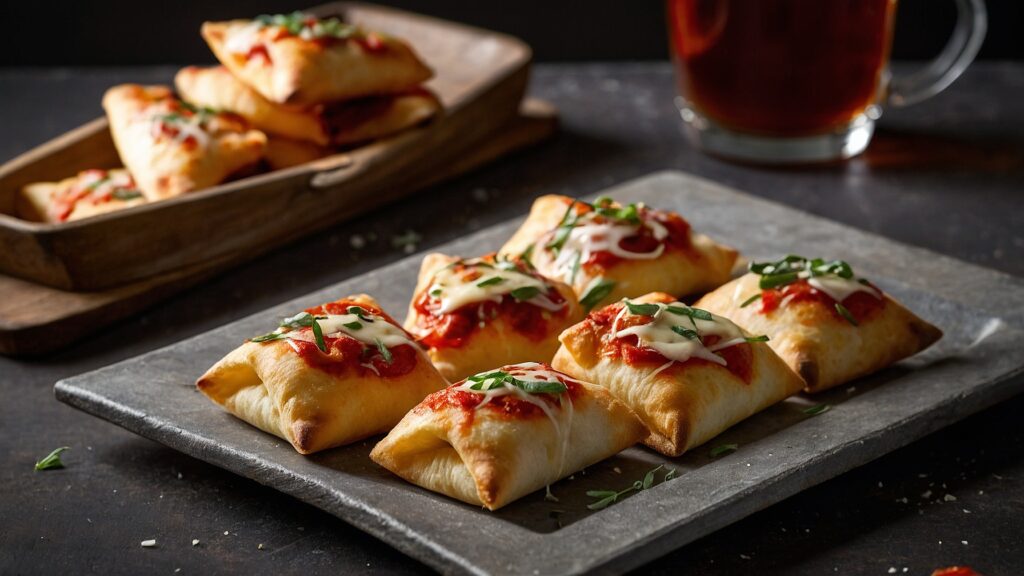
Here is an overview of the most problematic pizza roll ingredients for cats:
Onions and Garlic
As mentioned, onions and garlic contain damaging compounds that destroy red blood cells in cats. All forms should be avoided:
- Raw onions
- Cooked onions
- Onion powder
- Dehydrated onions
- Garlic
- Garlic powder
Even small amounts can accumulate over time. Ideally, a cat’s diet should be completely onion and garlic-free long term.
Dairy Products
Cheese and other dairy ingredients commonly cause gastrointestinal distress:
- Cheese (any type)
- Milk
- Butter
- Sour cream
- Yogurt
- Whey (milk byproduct)
- Casein (milk protein)
Dairy-free pizza rolls may be safer. But the other ingredients still pose risks.
Fatty, Greasy Dough
The high-fat dough triggers pancreatitis:
- Regular pizza dough
- Deep fried dough
- Butter-enriched dough
Low fat dough is ideal, but rarely used in pizza rolls.
Tomato Sauce and Seasonings
Watch for toxic herb additions in sauce:
- Onion/garlic powder
- Unsafe herbs
- High sodium
Plain or lightly seasoned sauce is best.
Processed Meat Fillings
Filling with high fat, salt, and chemicals are also risky:
- Pepperoni
- Sausage
- Ham
- Bacon
- Beef
- Chicken (if fatty)
Low sodium, unseasoned meat is optimal.
As you can see, almost every pizza roll ingredient poses a potential problem. Let’s explore what health issues may arise if a cat eats pizza rolls.
Health Risks of Feeding Cats Pizza Rolls
While one bite likely won’t cause immediate harm in healthy adult cats, regular consumption of pizza rolls can lead to:
- Digestive Upset
- Vomiting
- Diarrhea
- Excessive gas
- Abdominal pain
- Reduced appetite
- Pancreatitis
- Inflammation of the pancreas
- Nausea
- Abdominal pain
- Vomiting
- Diarrhea
- Dehydration
- Hospitalization
- Onion and Garlic Toxicity
- Oxidative damage to red blood cells
- Anemia
- Breathing trouble
- Weakness
- Collapse
- Kidney Problems
- Strain on kidneys filtering excess sodium
- Reduced kidney function
- Kidney disease
- Dehydration
- From repeated vomiting and diarrhea
- Can cause kidney failure
- Requires fluid therapy
Additionally, unhealthy pizza roll ingredients provide little nutritional value. They lack vitamins, minerals, and protein cats need.
Consuming pizza rolls regularly can lead to weight gain or even obesity over time. The high carb, sodium and fat content quickly exceeds a cat’s daily caloric needs.
In the short term, a single pizza roll likely will just cause some stomach upset. But the negative effects compound over time on kidneys, gut, and overall health. It’s best to avoid this risk and not feed cats pizza rolls.
Now let’s look at some healthier, cat-safe alternatives.
Safer Human Snack Alternatives for Cats
While pizza rolls are too risky, you can occasionally share small tastes of these safer human snack foods with your cat:
- Plain cooked chicken or turkey (low salt)
- Baked freshwater fish like salmon or tuna
- Plain scrambled eggs
- Steamed vegetable pieces like carrots or sweet potato
- Air-popped popcorn (no butter)
- Baby food (chicken, turkey, or fish flavors without onion/garlic)
- Small pieces of lean deli meat (no onion/garlic)
For a special treat, you can make DIY healthy pizza rolls with cat-safe ingredients:
- Pizza dough: Whole wheat flour + cheese alternative
- Filling: Shredded chicken breast + veggies
- Sauce: Pureed pumpkin or sweet potato
When sharing human foods:
- Stick to cat-safe ingredients only
- Portion a small amount
- Provide only occasionally in moderation
- Avoid excessive salt, fat, sugar, spices
- Never replace regular cat food meals
Check with your vet if you have any concerns about diet or introducing new foods. But steering clear of pizza rolls removes the health risks to cats.
Now let’s cover some frequently asked questions about cats and pizza rolls next.
Frequently Asked Questions about Cats and Pizza Rolls
Can cats eat pizza roll filling?
No, the filling still presents issues. Pepperoni, sausage, ham and other processed meat fillings are too high in fat, salt and chemicals for cats. The cheese in most fillings can also cause digestive upset.
How many pizza rolls can cats eat safely?
Ideally none, since any amount of onion, garlic, dairy or salt is unhealthy for cats long term. At most, a bite of filling without ingesting the dough carries minimal risk for generally healthy adult cats. But it’s better avoided altogether.
What happens if a cat eats pizza rolls?
If a cat eats one or two pizza rolls, it may experience vomiting, diarrhea or upset stomach. Eating them more frequently can result in pancreatitis, kidney damage, anemia, obesity and other health issues over time depending on the ingredients. Immediately call your vet if symptoms concern you after ingesting pizza rolls.
Can I give my cat homemade pizza rolls?
You can make cat-safe DIY pizza rolls using cat-appropriate ingredients. Substitute regular pizza dough with wheat flour and cheese alternative. Use shredded chicken or fish for filling instead of pepperoni and sausage. And replace tomato sauce with pureed vegetables. This removes the risky ingredients. But commercial pizza rolls are still too hazardous for cats.
Why can’t cats eat onions and garlic?
Onions and garlic contain toxic compounds called thiosulfates that destroy red blood cells in cats. This leads to a dangerous condition called Heinz body anemia that prevents blood cells from carrying oxygen effectively. Even small amounts can be dangerous over time.
Are pizza rolls bad for cats?
Yes, pizza rolls are unhealthy for cats and should be avoided. Their ingredients like onion, garlic, greasy dough, cheese and heavily processed meat can cause conditions such as anemia, pancreatitis, gastroenteritis and kidney disease in cats. The high sodium content is also extremely dangerous to cats. There are far better snack options to share safely with cats.
The Bottom Line
Pizza rolls may look like an innocently delicious snack, but they can seriously harm cats over time. The multiple toxic and inflammatory ingredients lead to a range of health issues with repeated ingestion. From the dough, to the filling and sauces, most components of pizza rolls pose a risk. The best option is never feeding pizza rolls to cats in the first place.
Cats can safely eat small amounts of plain cooked meat, fish, eggs and low-sodium vegetables as an occasional treat. Making cat-friendly DIY pizza rolls is also an alternative. But when it comes to regular frozen pizza rolls, it’s best to enjoy these without sharing with cats.
Keeping pizza rolls away from cats removes multiple health dangers and ensures your cat stays happy and healthy. Talk to your vet if you have any other diet concerns. With some knowledge and precaution, we can keep our feline companions safe while still enjoying the human foods we love.
Reference
- ASPCA. “Onions, Garlic, Chives.” ASPCA
- PetMD. “Can Cats Eat Cheese?” PetMD
- VCA Hospitals. “Pancreatitis in Cats.” VCA Animal Hospitals
